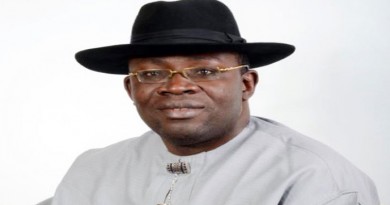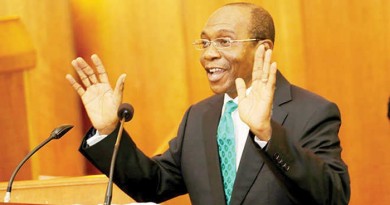Ibadan Obas: We’ll appeal judgement ―Ajimobi
Governor Abiola Ajimobi of Oyo State has said that the state government will appeal Friday’s judgement of Justice Olajumoke Aiki which nullified the processes leading to the installation of 21 kings of Ibadan land.
Ajimobi stated this while commissioning a block of classroom, donated by Chief Akin Olujimi (SAN) to Community Secondary School, Ajara, Ibadan, on Friday.
He argued that the review of the Olubadan Chieftaincy Declaration of 1959 and eventual installation of 21 Ibadan Obas was meant to uplift the status of Ibadan in the comity of states.
“Today’s judgement on the Olubadan Chieftaincy review will be appealed immediately. We have embarked upon the exercise, not for a joke, but for the good of Ibadan and the people therein.
“We will not relent in making Ibadan great and the greatness shall come from various ways, one of which is the review exercise. You should not expect people to accept change and radical policy for that matter, but we shall get there. We will not allow the forces of retrogression to overtake the progress Oyo State is making,” Ajimobi said.
It will be recalled that Oyo State High Court sitting in Iyaganku, Ibadan, on Friday declared the review of the 1957 Olubadan Chieftaincy Declaration and other Related Chieftaincies Laws in Ibadanland by the Oyo State Government as unconstitutional, illegal, null, void and of no effect.
The court headed by Justice Olajumoke Aiki delivered the judgment in a case filed by a former governor of the state, Senator Rashidi Ladoja against Governor Abiola Ajimobi and Justice Akintunde Boade, the chairman of the judicial commission of enquiry that reviewed the law.
Governor Ajimobi had on May 19, 2017 set up a judicial commission of enquiry to review the 1957 Olubadan Chieftaincy Declaration and other Related Chieftaincies laws in Ibadanland.
Accordingly, a report was submitted by the panel, in August, 2017 and a White Paper on the report was published in the Oyo State Gazette No. 14, Vol. 42 by Authority on August 23, 2017 and the amended declaration on regulating the selection to the Olubadan of Ibadan Chieftaincies and related matters published in the Oyo State Gazette No. 15, Vol. 42 by Authority in Ibadan on August 24, 2017.
Another government committee was later set up to review the report and recommendations of the committee.
The process led to the installation of 21 new (obas) kings in Ibadanland on August 27, 2017 at the Mapo Hall Arcade, Ibadan amidst drums and fanfare.
The 21 new kings comprised eight members of the Olubadan-in-Council elevated from High Chiefs to beaded crown wearing monarchs while the remaining 13 are village heads (Baales) promoted to coronet wearing obas.
Ladoja, who refused to accept the beaded crown, had filed two cases against the review at the state High Court.
He jointly filed the initial suit with his immediate senior on the Otun Olubadan chieftaincy line, Oba Lekan Balogun, who is the Otun Olubadan and most senior chief on the Otun line. Balogun backed out of the case later.
However, Ladoja filed the second case alone.
The court, in the judgment held that wearing of beaded crowns are beyond the purview of Sections 10,12 and 25 of the Oyo State Chiefs Law, stating that Section 25 of the chiefs law could not be treated in isolation to the provisions of Parts Two and Three of the Chiefs Laws
The court also said provisions of Parts Two and Three of the Chiefs Laws, particularly Sections 10, 12 and 25 did not give power to the governor to review the Olubadan chieftaincy declaration.
The governor, according the court, exercised his power beyond the constitution and the provisions of the chieftaincy laws made by the House of Assembly, adding that a judicial commission of enquiry could not amend or further amend, review or further review the chieftaincy declaration.
Counsel to Ajimobi, Mr. Nurudeen Adegboye, in an interview with journalists after the judgment said: “The judge has invested a lot of effort, energy and precious judicial time on the judgment. Though we hold a different view from that of the judge or the court, the court’s view is the one that is binding.
“So, we have applied for the copy of the judgment. We will look at it again and based on the instruction of our client, because it is our client that has the right to appeal or not. If he gives us the instruction or if he feels he wants to accept the judgment, it is left to him.”




